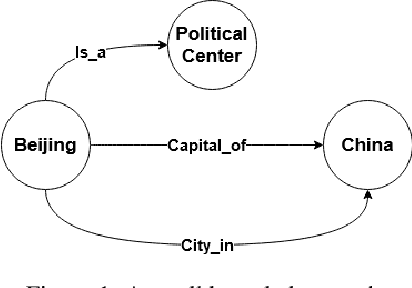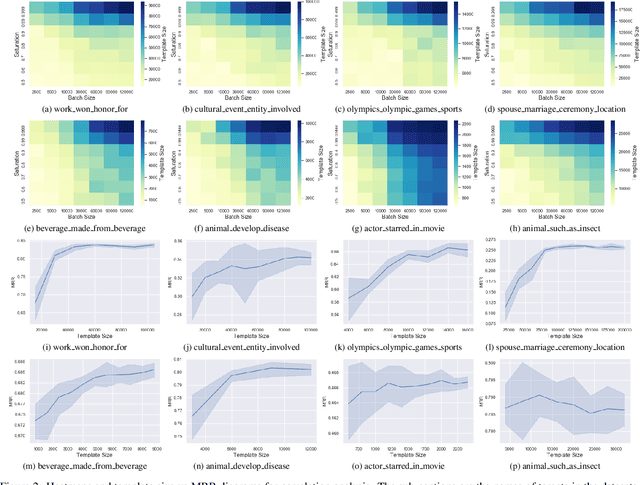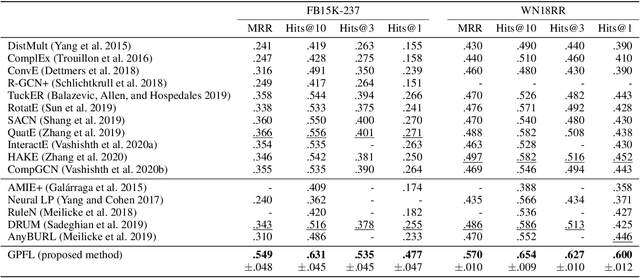Efficient Rule Learning with Template Saturation for Knowledge Graph Completion
Paper and Code
Mar 13, 2020



The logic-based methods that learn first-order rules from knowledge graphs (KGs) for knowledge graph completion (KGC) task are desirable in that the learnt models are inductive, interpretable and transferable. The challenge in such rule learners is that the expressive rules are often buried in vast rule space, and the procedure of identifying expressive rules by measuring rule quality is costly to execute. Therefore, optimizations on rule generation and evaluation are in need. In this work, we propose a novel bottom-up probabilistic rule learner that features: 1.) a two-stage procedure for optimized rule generation where the system first generalizes paths sampled from a KG into template rules that contain no constants until a certain degree of template saturation is achieved and then specializes template rules into instantiated rules that contain constants; 2.) a grouping technique for optimized rule evaluation where structurally similar instantiated rules derived from the same template rules are put into the same groups and evaluated collectively over the groundings of the deriving template rules. Through extensive experiments over large benchmark datasets on KGC task, our algorithm demonstrates consistent and substantial performance improvements over all of the state-of-the-art baselines.
 Add to Chrome
Add to Chrome Add to Firefox
Add to Firefox Add to Edge
Add to Edge